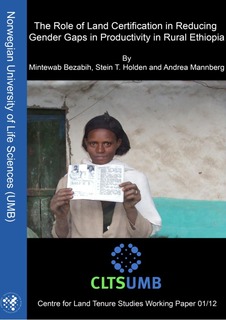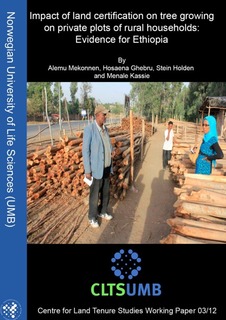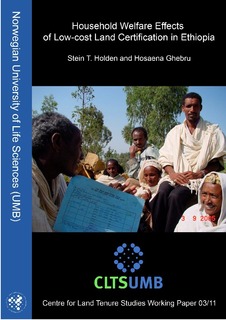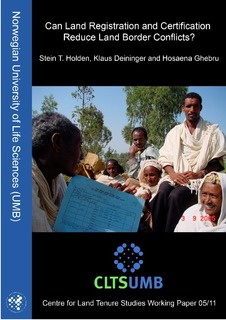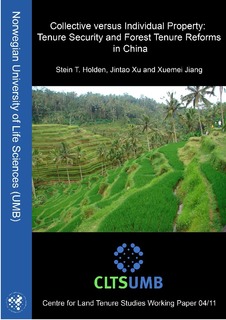Location
NMBU's mission is to contribute to the well-being of the planet. Our interdisciplinary research generates innovations in food, health, environmental protection, climate and sustainable use of natural resources.
About NMBU
NMBU's research is enabling people all over the world to tackle the big, global challenges regarding the environment, sustainable development, how to improve human and animal health, renewable energy sources, food production, and land- and resource management.
Members:
Resources
Displaying 66 - 70 of 98The role of land certification in reducing gender gaps in productivity in rural Ethiopia
This paper analyses the impact of a low cost and restricted rights land certification program on the productivity of female-headed households. The analysis is based on plot level panel data from the East Gojjam and South Wollo Zones in the Amhara region of Ethiopia. The results suggest a positive and significant effect of certification on plot-level productivity, particularly on plots rented out to other operators.
Impact of land certification on tree growing on private plots of rural households : evidence from Ethiopia
Household welfare effects of low-cost land certification in Ethiopia
Several studies have shown that the land registration and certification reform in Ethiopia has been implemented at an impressive speed, at a low-cost, and with significant impacts on investment, land productivity, and land rental market activity. This study provides new evidence on land productivity changes for rented land and on the welfare effects of the reform. The study draws on a unique household panel, covering the period up to eight years after the implementation of the reform.
Does land registration and certification reduce land border conflicts?
This paper assesses factors related to local land border conflicts and how low cost land registration and certification has affected land conflicts during and after land registration and certification using data from northern Ethiopia. Border conflicts were more common near district centers, further away from markets, and where property rights had been redistributed more recently.
Collective versus individual property : tenure security and forest tenure reforms in China
This study assesses the determinants of forest land allocation to households in the forest tenure reforms in China in the period 1980-2005 using data from three provinces in Southern China; Fujian, Jiang Xi and Yunnan. Furthermore, it assesses the current level of tenure security on forest land and how this tenure security is affected by past and more recent policy changes.


